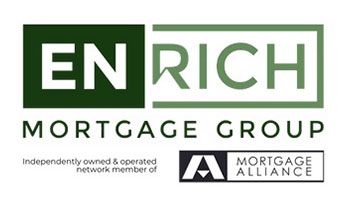The Truth About Mortgage Pre-Approvals
If you want to purchase a house but are unsure about how much you can spend, knowing which homes are within your range is difficult. For example, you might find a property that looks exactly like your dreams but have no idea about whether it’s a realistic option for your budget. In such cases, it helps if you get a pre-approval. A pre-approval means that a lender has agreed, in principle, to lend you a specific amount towards the purchase of a house. However, they have not yet proceeded to the final approval. A pre-approval allows you to know the maximum funds available to you so you can narrow your search and negotiate with more certainty.
As you can see, a pre-approval is a valuable step in getting you closer to your dream home or investment property. It is definitely not a requirement in the home buying process, but it can make life easier. Unfortunately, most people are unaware of how a pre-approval works, which prevents them from taking advantage of it or encourages misinformation about pre-approvals. To help you get a deeper understanding of mortgage pre-approvals, Keith Uthe Demystifying Mortgages has explained the truth about them below so you can focus your house hunting on the properties you can actually afford.
The truth about mortgage pre-approvals
Many people assume that their mortgage is as good as done once they have a mortgage pre-approval. But, this is far from the truth. While pre-approval means that you are more likely to have a loan approved, it doesn’t provide an iron-clad guarantee. The reason for this is in recent years, mortgage guidelines have been tightened, and documentation requirements have been expanded and followed more closely. A pre-approval help lenders uncover potential pitfalls related to lending to you. However, even when a thorough review has been conducted, and you are in possession of a pre-approval certificate, there are still many things that could happen to compromise your home purchase. The pre-approval only considers your personal creditworthiness and borrowing capacity. The actual amount you qualify for also depends on the property itself, along with the lender and insurer’s assessment of your application. To secure a mortgage, the borrower, that is you, and the property, have to be assessed as no one knows the exact property you are going to buy when you are pre-approved. When it’s time for the lender to approve your mortgage, there are many ways in which a specific property can impede the approval.
Reasons why a specific property can cause concern
Value of the home: When multiple buyers are competing for a property, there can only be one winner that takes the cake. In this market, the winner often has to bid higher than the market value. When this happens, the appraisal may come back with a value less than you paid. That will not necessarily kill your mortgage approval, as long as you have additional financial resources to cover the shortfall, if necessary. It is important to note that this market does not favor buyers who go in with no wiggle room. If you are using all your financial resources to come up with the down payment and closing costs, you must also know what to do if the value comes back lower.
Property condition: Have you ever seen an MLS listing that says “as-is” or “handyman special?” Those are red flags to a lender, and a mortgage may not be forthcoming at all if the property you choose comes with these labels. The appraisal may further report poor conditions or even structural issues.
Property specifics: There are many reasons for which a property may prove challenging. Places like homes on leased land, first nations, government or private, rural properties with a hint of hobby farming, properties containing asbestos, etc., may be difficult to approve for a mortgage.
Location: If a lender feels that the property you picked is too far from your workplace, they may assume you need to keep a second home or place to stay. In such cases, they assign a “shelter cost” for you. This might also skewer your approval.
Reasons why you might hurt your own mortgage approval
Besides certain aspects of a property, your mortgage approval might also be affected by something that has to do with you. Either something material has changed in your circumstances, or new information has come to light, all of which can change the lender’s view of you. The golden rule is to be cautious of any change during the home-purchasing process. A new car in the driveway or a new job might completely cast things in a different light. So hold off on these changes until you’ve received approval.
You also want to be sure your personal taxes are up to date and in good standing with the CRA. Pay all of your credit card bills on time and ensure you do not miss any payments. Most of all, keep in mind that it is definitely not a good time to defer loan payments of any kind. A mortgage lender might think twice about lending a considerable amount to someone who needs relief from their existing financial obligations.
The takeaway
When you are narrowing down on a particular property, make sure to circle back to your mortgage broker and ask them to input the property’s specs into your application. Similarly, clarify and understand the strength of your mortgage pre-approval. Take into account what factors might result in a mortgage offer for a reduced amount, or worse, not being extended an offer at all. Understand from your mortgage broker where your debt service ratios are at and if your credit history and employment situation are still acceptable. Ensure your income is well understood. Then, insist that your mortgage broker or realtor provides you with an up-to-date market analysis of the property’s value and assesses your ability to bear the brunt of a lower-than-expected appraisal value.
An experienced mortgage broker can often tell whether or not your mortgage approval would be at risk and can help you assess when a risk is worth taking. They can inform you about potential concerns so you can make an educated decision to proceed with your offer to purchase. But at the end of the day, this decision is all on you, the buyer. So, ensure you have all the details you need if you choose to go firm with your offer.
Keith Uthe Demystifying Mortgages wants to help you understand the nuances behind getting a pre-approval and how you can make it work in your favor. When you are ready to make offers, your mortgage pre-approval shows that you are a serious buyer and have taken the steps necessary to get the finances you need for the house.
If you are looking for a mortgage broker or specialist that can service clients throughout Canada, then reach out to Keith Uthe Demystifying Mortgages. As an independent mortgage specialist with Mortgage Alliance Enrich Mortgage Group and a Smith Manoeuvre Certified Mortgage Professional located in Calgary, my daily objective is to fulfill my personal life vision that “Everyone is Living a Life of Abundance.”
My experience, training, and knowledge as a Smith Manoeuvre Certified Professional, Real Estate Investor, Certified Real Estate Investment Adviser, Certified Financial Life Professional and Mortgage Broker all play a part in what I am able to give to those that I work with so that they may live a financial life through design rather than by accident. I offer services such as first-time homebuyer mortgages, refinance, debt consolidation, construction, commercial mortgages, business financing, private lending, real estate investment advising, rental property financing, renovation financing, etc.
To learn more about my services,
please click here. To get in touch with me,
please contact me here.
Recent Posts





Contact INformation
Phone: (403) 614-8843
Email: keith@enrichmortgage.ca
Address: 101, 6420 6A Street SE Calgary, AB T2H 2B7
Business HOurs
Monday to Friday: 9:00 AM to 6:00 PM
Saturday: 10:00 AM to 2:00 PM
Sunday: Closed
Enrich Mortgage Group
